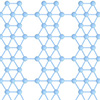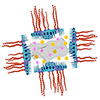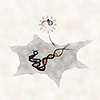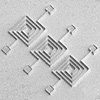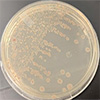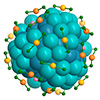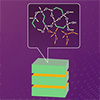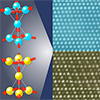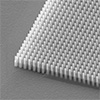Apr 09, 2025 Scientists have created a scalable cryogenic process for producing borophene sheets that efficiently harvest energy from motion, enabling next-generation flexible electronics. (Nanowerk Spotlight) Scientists have created a remarkably simple method to produce borophene—a material that could revolutionize everything from wearable electronics to battery technology. The new approach...
Bacteria-enhanced graphene oxide nanoparticles for triple-action tumor erradication
Apr 03, 2025 Researchers developed graphene oxide nanoparticles that combine chemotherapy, immune activation, and photothermal heating to effectively destroy tumors. (Nanowerk News) Modern cancer treatments have evolved beyond traditional chemotherapy to include targeted approaches such as immunotherapy, radiation therapy, and photothermal therapy. Graphene oxide (GO), known for its biocompatibility, high...
Engineering smart delivery for gene editors
Apr 09, 2025 Researchers developed an advanced delivery system that transports gene-editing tools based on the CRISPR/Cas9 gene-editing system into living cells with significantly greater efficiency than before. (Nanowerk News) A research team from Helmholtz Munich and the Technical University of Munich has developed an advanced delivery system that transports...
How 3D printing Is shaping the future of tiny devices
Apr 09, 2025 Researchers show how 3D printing enables sub-micron precision in microelectronics and microfluidics, offering a flexible alternative to traditional methods. (Nanowerk News) As micro and nanotechnology continue to evolve, the demand for devices with complex structures and precise size control has skyrocketed. Traditional manufacturing methods, however, often struggle...
Creating tiny biomedical factories from common bacteria
Apr 09, 2025 Engineered bacteria secrete powerful nanoparticles to aid in drug delivery, vaccines and treating medical conditions, such as Inflammatory Bowel Disease. (Nanowerk News) Researchers led by the University of Waterloo have discovered how to turn common bacteria into high-efficiency factories capable of producing tiny, powerful particles for drug...
Could LLMs help design our next medicines and materials?
Apr 09, 2025 A new method lets users ask, in plain language, for a new molecule with certain properties, and receive a detailed description of how to synthesize it (Nanowerk News) The process of discovering molecules that have the properties needed to create new medicines and materials is cumbersome and...
Scientists uncover spin-catalytic activity correlation in single-atom and -electron tailored gold nanoclusters
Apr 09, 2025 Researchers precisely removed a gold nanoparticle's core atom and outermost electron to study how magnetic spin affects its catalytic activity. (Nanowerk News) A team of researchers from the Hefei Institutes of Physical Science of the Chinese Academy of Sciences (CAS) has consecutively removed the innermost atom and...
An efficient self-assembly process for advanced self-healing materials
Apr 01, 2025 The novel method produces multilayered self-healing films with enhanced durability compared to conventional materials for coatings and flexible electronics. (Nanowerk News) Polysiloxane materials, such as polydimethylsiloxane (PDMS)-based elastomers, exhibit a self-healing capability by the introduction of silanolate (Si–O–) groups. This ability stems from their dynamic siloxane (Si–O–Si)...
Scientists merge two ‘impossible’ materials into new artificial structure
Apr 01, 2025 Researchers have merged two lab-synthesized materials into a synthetic quantum structure once thought impossible to exist and produced an exotic structure expected to provide insights that could lead to new materials at the core of quantum computing. (Nanowerk News) An international team led by Rutgers University-New Brunswick...
Doubling down on metasurfaces
Apr 01, 2025 Researcher have created a bilayer metasurface made of two stacked layers of titanium dioxide nanostructures, opening new possibilities for structuring light. (Nanowerk News) Almost a decade ago, Harvard engineers unveiled the world’s first visible-spectrum metasurfaces – ultra-thin, flat devices patterned with nanoscale structures that could precisely control...

